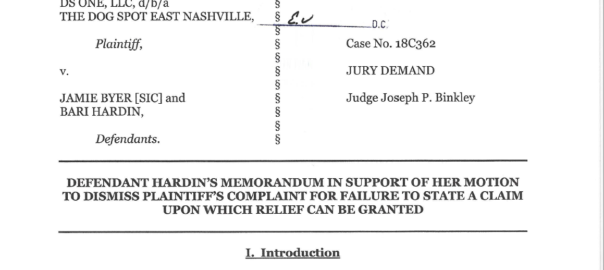Earlier today, the Tennessee Supreme Court rejected a proposed rule change that would have subjected attorneys to professional discipline for expressing views that could be considered discriminatory or harassing. The proposed changes were roundly criticized as an overbroad infringement upon attorneys’ constitutionally protected rights to freedom of speech and association. The controversial rule received nearly 400 pages of commentary from members of the bar, members of the public, and interested organizations.
Model Rule of Professional Conduct 8.4(g) was initially drafted by the American Bar Association in August of 2016 as an effort to curb discrimination and harassment in the legal profession. Thereafter, several prominent national commentators promptly criticized it, and to date, nearly every jurisdiction that has considered the proposed change has rejected it.
On November 15, 2017, the Tennessee Board of Professional Responsibility and the Tennessee Bar Association filed a joint petition asking the Tennessee Supreme Court to adopt an amended version of Rule of Professional Conduct 8.4(g). The proposed amendments would have made certain forms of discrimination and harassment subject to professional sanction, with several exceptions.
Despite its laudable goals, the proposed amendments suffered from serious shortcomings. As this author noted in a recent Nashville Post article on the proposal:
“Although motivated by good intentions, proposed Rule 8.4(g) is a constitutionally infirm speech code that suffers from several critical flaws. First, it is wildly overbroad; it would, for example, prohibit attorneys from restricting their pro bono practice to female victims of domestic violence or to members of their church, because doing so would constitute sex discrimination and discrimination on the basis of religion, respectively. Second, it grants the Board of Professional Responsibility immense new regulatory authority to punish attorney speech, and based on the BPR’s long history of selective enforcement and a curious exemption in 8.4(g) that makes clear that exercising ‘peremptory challenges . . . on a discriminatory basis does not alone establish a violation,’ it is fair to say that the BPR should not be trusted with such vast censorial authority. Third, more generally, it gives the Government the power to determine what kind of speech is permissible and what kind of speech is illegal—a deeply troubling and downright dangerous proposition that cannot be squared with basic principles of the First Amendment.”
In a formal opinion released in March, the Attorney General of Tennessee similarly concluded that the proposal was unconstitutional.
Upon review, the Tennessee Supreme Court issued a per curiam order denying the BPR’s and TBA’s joint petition. “The Court has carefully considered the BPR and TBA’s proposed amendment, the comments received, including the points and issues raised therein, and this entire matter. Upon due consideration, the BPR and TBA’s petition to adopt a new Rule 8, RPC 8.4(g) is respectfully DENIED. It is so ORDERED,” today’s Order reads. The Court’s formal denial is accessible here.
Like ScotBlog? Join our email list or contact us here, or follow along on Twitter @Scot_Blog and facebook at https://www.facebook.com/scotblog.org



